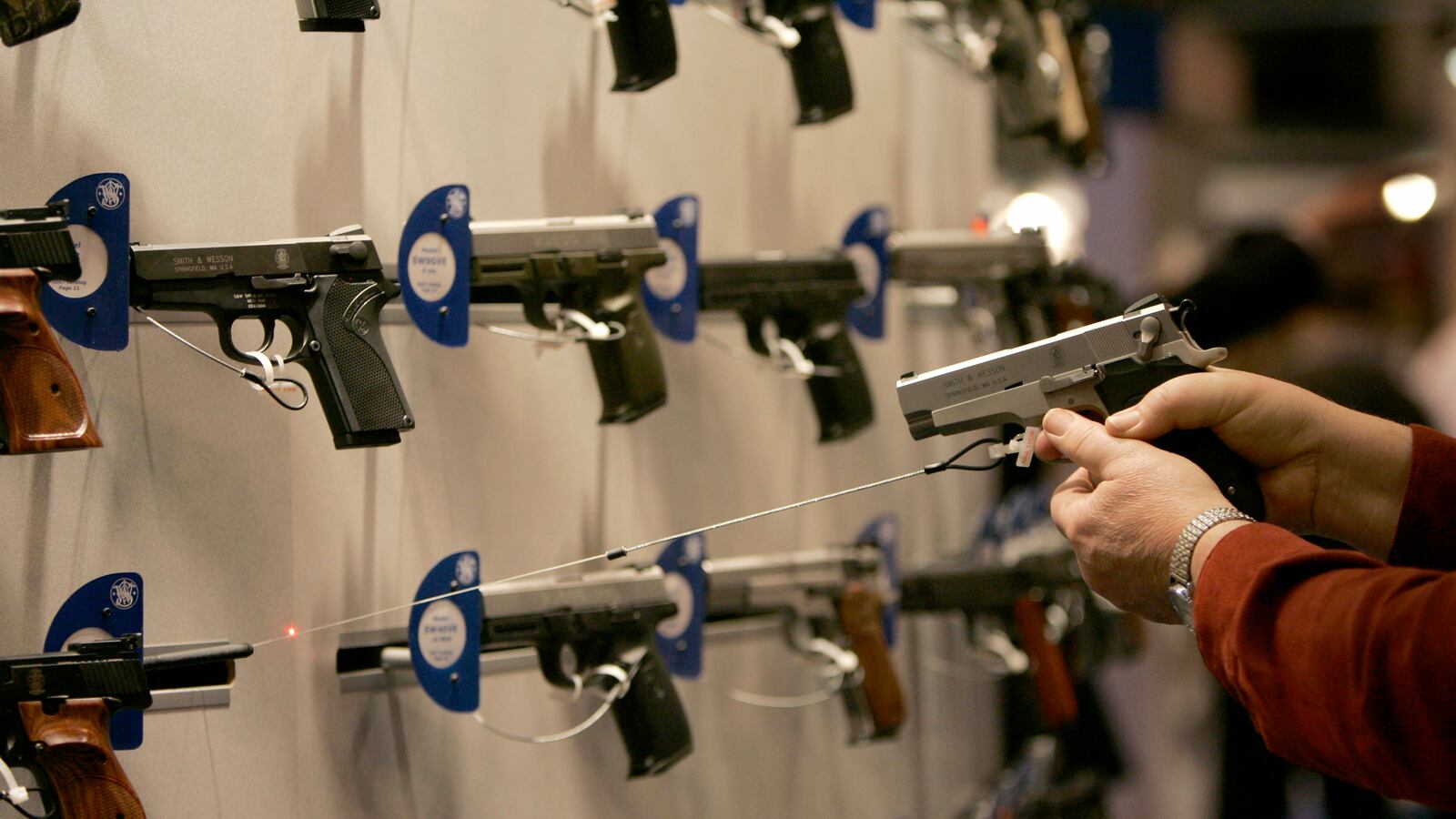The leaders of the National Rifle Association keep saying we don’t need any new gun laws and should just to enforce the ones we already have. But here’s the rub: nobody has done more to undermine the enforcement of the laws we already have than the NRA leadership.

In the current gun debate in Washington, the big-ticket item for advocates of stronger gun laws is universal background checks—this is, requiring a background check on every gun sale, including those guns sold by unlicensed, so-called private sellers at gun shows, online, and elsewhere.
The NRA lobbyists are working overtime to block this bill despite poll after poll showing that 9 in 10 Americans—and even 85 percent of NRA members—support the idea.
Seeing that they may not be able to block the bill entirely, NRA lobbyists are pushing a backup plan: make background checks unenforceable.
A key element of gun background checks is gun dealer record keeping. You see, gun stores have been required for 20 years now to keep a record of the background checks they run, which means that if a gun is used in a crime, law enforcement can trace it back to its original purchaser.
The universal background checks bill in the Senate would simply require private sellers and buyers to meet in a gun store—which is hardly onerous given that 98 percent of Americans live within 10 miles of one. The dealers would then run the check and keep a record of it, just as stores already do for their own sales.
The NRA is suggesting that having dealers keep records amounts to some sort of secret gun registry that will lead to the government confiscating guns from law-abiding owners. That’s simply not true. There is no federal-government gun-ownership registry now, and there would not be under the Senate bill.
Trying to block dealer record keeping of background checks is part of a pattern for the NRA. For the last seven years, the NRA has helped block the appointment of a director for the Bureau of Alcohol, Tobacco, Firearms, and Explosives (ATF), the federal law-enforcement agency charged with fighting gun trafficking and gun crime.
For the last quarter century, the NRA’s lobbyists have been working the shadowy corners of the congressional budgeting and appropriations process to insert “riders”—restrictions on how federal funds can be spend—that target the enforcement powers of the federal government.
As “Blindfolded, and With One Hand Tied Behind the Back”—a report for the Center for American Progress I co-authored last month—describes, the NRA has succeeded in getting 15 such riders into federal budgets.
These riders stop ATF from effectively enforcing our existing laws in a number of ways, including:
• Blocking ATF from requiring gun dealers to check their inventory. ATF finds that for the 20 percent of gun stores they have the resources to inspect, about 20,000 guns disappear from their inventories each year. An NRA rider now blocks ATF from requiring the other 80 percent of gun dealers to check their own inventories and report back.• Preventing ATF from computerizing records already in their possession. An NRA rider forces ATF to store certain records in boxes and microfiche (who uses microfiche anymore?)—and prevents those records from being computerized. This restriction waste resources and make crime gun tracing harder and slower.• Trying to prevent ATF from catching straw purchasers working for the Mexican drug cartels. In 2010 the Obama administration put forward an order requiring gun dealers in the southwest border to flag bulk purchases of assault rifles to ATF. This measure has proved effective in catching straw buyers who are buying guns on behalf of the Mexican drug cartels. So, of course, the NRA is pushing a new rider, which has passed the House but not the Senate, to override the reporting requirement for bulk purchases of assault rifles.
Perhaps most incredibly, another NRA rider prevents the federal government from transferring any ATF responsibility to any other federal law-enforcement agency, like the FBI or the Drug Enforcement Agency.
So, yes, the NRA leadership is all for enforcing the laws on the books—so long as the enforcer of those laws is leaderless, blinded, shackled, and not allowed to use computers.






